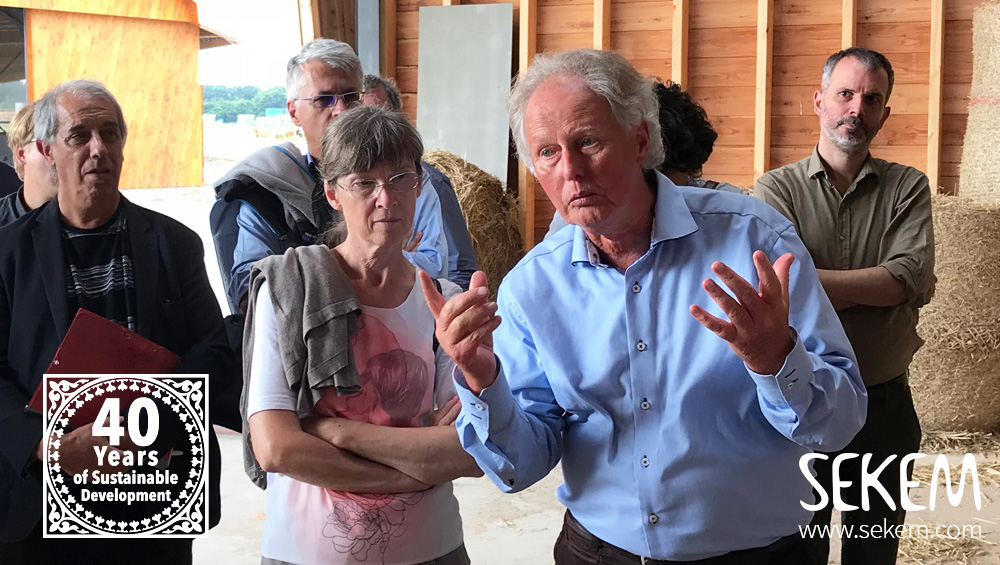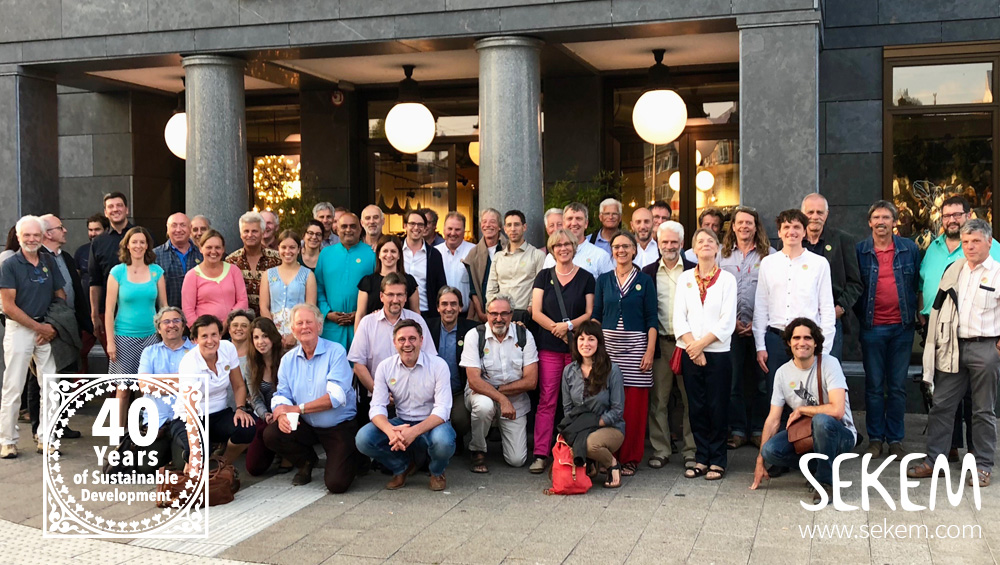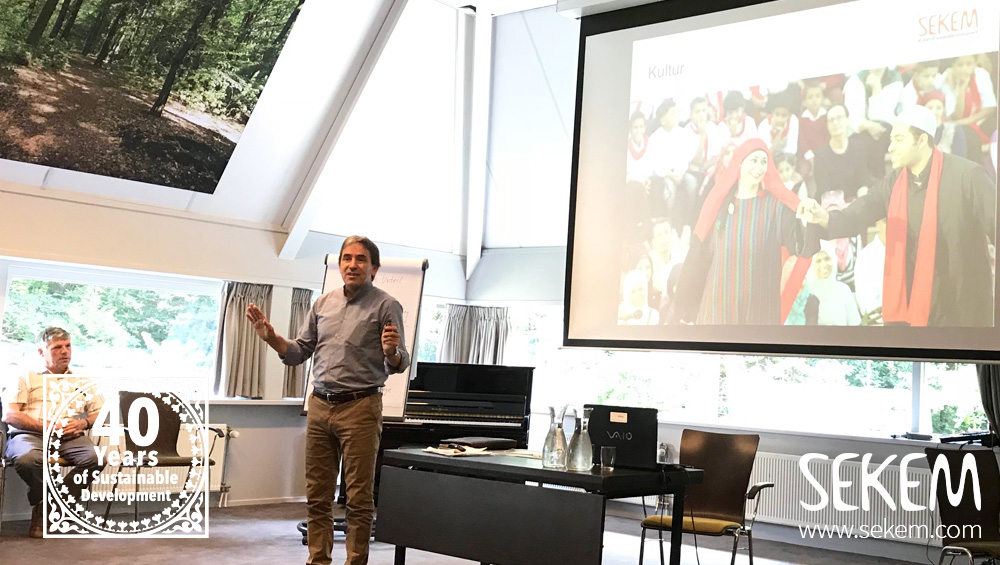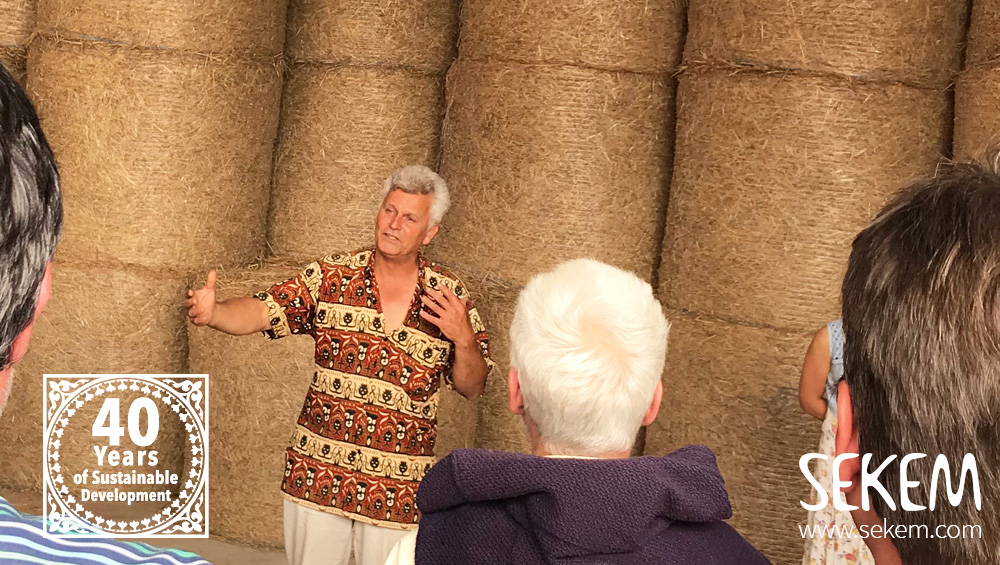At the beginning of July 2018, SEKEM‘s CEO Helmy Abouleish once again attended in the Economy Council which was this time related to the question “Associative Economy – How does the Organic Sector finance itself?”. This year’s meeting took place in the Netherlands, hosted by the Organic company “Odin”, which involves as a cooperative consumer in financing.
Solidarity: A matter of the heart that unites
“The capital must be consumed so far that there only remains what can be understood as a kind of seed for the further increase of the economic process, and again can be incorporated by nature,” with this quotation of Rudolf Steiner, who created the concept of Associative Economics, Ueli Hurter, Head of the Agriculture Section at the Goetheanum, opened the conference in the Netherlands. Among the participants there were farmers, processors, traders, marketers and consumers, but above all people to whom a solidary economy is a matter of the heart. Everyone is looking from a different perspective, partly controversial, on a fair creation of value and financing – but what unites them all is the endeavor to realize a sustainable agriculture and economy on their own way. Koos Bakker, founder and until recently managing director of “Odin”, emphasized the importance of this vision community for the development of his solidary cooperative: “The international meetings of the past years, were of great importance for us at ‘Odin’ to always keep the right way. Now we have to deal with the question on how we can establish a real brotherhood and bring it into reality.”

Redefining return of investment
The urgent need for bringing the concept of associative economics into more concrete practice, was examined and discussed on the basis of individual examples. The “Bio Development AG” presented itself as an alternative financing model. Through a qualified minority participation, entrepreneurship remains locally, and a high level of common values can be guaranteed. Through the consolidation of only a few shareholders, of whom all advocate for associative economic activity and biodynamic agriculture, the “Bio Development AG” finances itself completely without the involvement of banks. In the context of the financing question, the keyword “return of investment” inevitably appeared. It became quickly clear that an associative framework requires a completely new definition of terms such as “revenues” or “profits”.

In this context, the impressive presentation by Volkert Engelsmann, founder and CEO of “eosta”, one of the largest organic distributors in Europe, on the true costs of food was of high relevance. As SEKEM could also prove for Egypt in its study “Future of Agriculture”, the costs for our daily bread are much higher than they appear to the customers in the shop shelves. If, for instance, the impact on the people or the costs for environment damages were considered in the prices of the products – and sooner or later they will be – Organic products would already be cheaper today than the conventional ones. The extreme consumption of natural resources is still largely ignored in pricing, so that more and more fertile soil disappears, climate change is increasing, or water is wasted – even though we have already exceeded the planetary boundaries in many sectors. Hence, it is just a matter of time until considering the external costs of food production will become unavoidable. Volkert Engelsmann was able to show once again that true cost accounting is a fundamental element of associative economy and financing. With his detailed and lively presentation about the commitment of “eosta” to sustainable environmental and social responsibility, as well as by his personal credo “think big, act small, scale up fast”, Volkert Engelsmann was able to make an inspiring and lasting contribution to the conference.
“Think big, act small, scale up fast.” Volkert Engelsmann, Founder and CEO of “eosta”
Tom Saat, a farmer who cultivates 150 hectares biodynamically on the outskirts of Amsterdam, and cooperates with the city in an associative way, showed how practice and growth can be achieved in reality. The farmer is also a supplier and member of the cooperative “Odin”, which operates over 20 shops, a wholesaler, delivery service and more than 250 pick-up points. At one of the “Odin”-shops, Thomas Harttung, chairman of “Sustainable Food Trust” presented his company “Aarstiderne”, that delivers over 45,000 customers in Denmark and Sweden with organic boxes and became a leading enterprise in this sector worldwide.

Keeping farmers in focus
Like many other entrepreneurs in the Organic sector, Thomas Harttung was originally a farmer. However, the fact that farmers at the beginning of the value creation in today’s economies are at the very end of esteem and recognition, and that it is one of the main tasks of the associative idea to change that, seemed to be a strong common vision. Hence, the participants also worked on the further development of the “Charter for Associative Economy for the Organic Market”, which had been worked out last year. It was complemented by intentions regarding Biodynamic seeds and applied action research. In addition, the issue of compliance with Demeter principles in the situation of increasing cooperation with conventional markets was discussed more concretely. A significant development that will undoubtedly remain a major challenge in the future. Also, in this context Helmy Abouleish summarized his opinion on the meaning and purpose of the Economic Council: “We are currently witnessing a major transition phase – a change of consciousness. The future development of our earth is depending on us. I’m happy to see how all those people here are engaged to make a difference. Therefore, I am sure that an ‘economy of love’ will become reality in the world – but how much time it needs lies alone in our hands.”
Christine Arlt
Shaping an associative economy: Developing a charter for the Organic market
Organic farming worth it: Comparative study on the true costs of Organic and Conventional food production
SEKEM's Economy of Love

